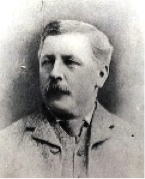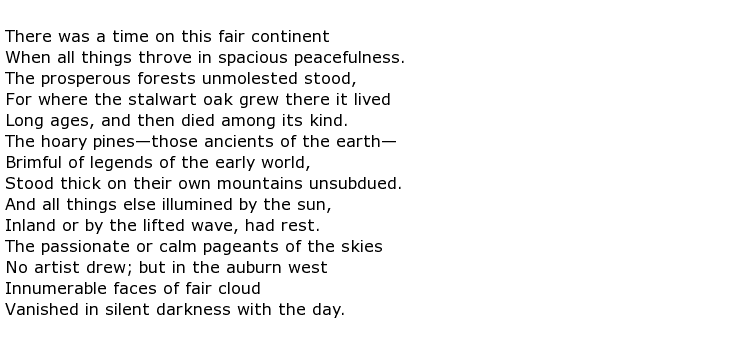 Charles Mair was a fiercely patriotic Canadian poet, journalist and civil servant whose nationalist fervour saw him helping to form, and then taking an active part in, the Canada First movement of 1868. Members sought to promote a strong British Protestant component within the Canadian identity. A major political figure at the time was Louis Riel who led two rebellions against the government and Mair was one of many who opposed this.
Charles Mair was a fiercely patriotic Canadian poet, journalist and civil servant whose nationalist fervour saw him helping to form, and then taking an active part in, the Canada First movement of 1868. Members sought to promote a strong British Protestant component within the Canadian identity. A major political figure at the time was Louis Riel who led two rebellions against the government and Mair was one of many who opposed this.
He was born on the 21st September 1838 in Lanark which was, then, part of the province of Upper Canada. He was a bright child who was able to attend Queen’s University in Kingston, Ontario but he did not stay long enough to gain a degree. He had ambitions to be a writer and took up a post as a journalist immediately after leaving his studies. He represented the Montreal Gazette for a time. He soon became active politically and, along with a small group of lawyers and civil servants, he became a founder member of Canada First which, in the early days, was seen merely as a social group.
Mair took his political views a step further though and he almost lost his life during the first of the so-called Riel Rebellions. His enthusiasm was recognised by the time the second rebellion took place and he was appointed as an Officer of the Governor-General”s Body Guard. At the same time he was putting down on paper his strong views and his first collection of poems appeared in 1868 under the title Dreamland and Other Poems. It was not especially well received at first although became more popular following the author’s escape from the clutches of Riel’s forces during the Red River disturbances of 1869-70.
His poetry was described as “conventional” by the Dictionary of Canadian Biography, containing much detail of natural phenomena such as his descriptions of the birds and insects flying over “ribby-lean cattle in parched fields”. Some of his descriptions though owed much to dreamlike scenarios as opposed to the actual timber lands that he knew so well. His work was even compared to romantic writers such as John Keats while the established Canadian poet Charles Sangster praised Mair’s work and lamented the fact that “Canada”s sophisticated literary tradition” was more often than not ignored by the press.
The Dreamland collection consisted of 33 poems which is generally acknowledged as being the precursor to much of the poetry describing the natural world that followed, as written by the so-called Confederation Poets. Possibly his most significant piece of work was a dramatic, epic poem called Tecumseh which was about the armed conflict of 1812 between North American forces and the British who were aided by colonials in Canada and natives of that country led by the Indian chieftain called Tecumseh. The theme running throughout is that the natural world must be protected from the ravages of American materialism by the proto-(Anglo) Canadians who are seen as the natural guardians of the land. The chieftain is tragically killed. Here are the opening lines of this emotional poem which was eventually recognised as one of the central pillars in the development of Canadian drama:

He gained a number of awards for his writing including election as a Fellow of the Royal Society of Canada in 1889 and being designated a Person of National Historic Significance in 1937.
Charles Mair died on the 7th July 1927 at the age of 88.

